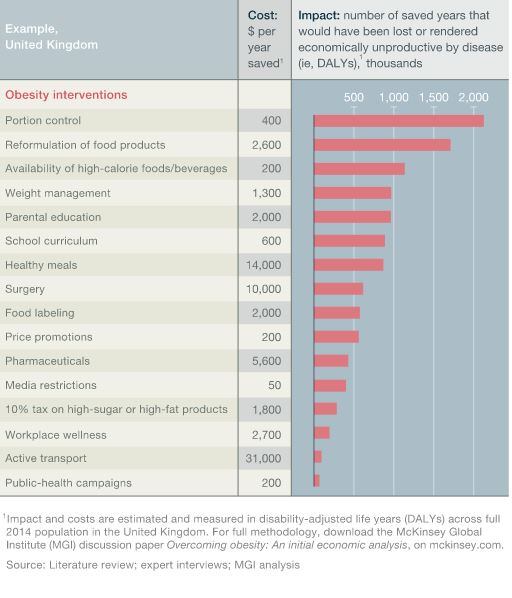This was the message that emerged from a Policy UK forum held in London this week where campaigners, health experts, economists and researchers agreed that action was urgently needed and that blame-shifting needed to stop.
And with UK advisory body Health Select Committee calling for ‘bold and brave action’ and the Conservative government’s obesity strategy due early next year, measures such as a sugar tax, limits on price promotions and marketing as well as reformulation were up for discussion. But what form that action should take was less clear.
‘We need leadership’
For Richard Dobbs, director of McKinsey Global Institute, the UK has the opportunity to do something great but crucial government support is lacking. “I think there is the opportunity here to do something great in the UK. Great things can start in the UK - think about LiveAid. We can start global campaigns here. It’s a matter of mobilising it and finding leadership from the government.”
But tackling a problem on the scale of the current obesity crisis is simply not going to happen if the government does not throw its weight behind it in the same way it does for war, a crisis of similar (economic) proportions, he said. In terms of workforce hours, the UK only has the equivalent of 0.5 ministers in full time employment dedicated to obesity, compared with over six for war.
Pushing the limits of politically acceptable
But can the government expect public support for measures designed to make food less palatable, less available or more expensive? And if the answer is no, should we really expect any of these measures to make the government’s obesity plan?
For Mike Raynor director of the British Heart Foundation (BHF), resistance to such measures should be expected because people were not aware of the scale of the problem. “But the government isn’t always supposed to do everything that’s popular,” he said. “If they did we’d have hanging in this country. The government needs to take a lead here.”
Public Health England is calling for action in nine different areas, including:
• Restrictions on price promotions of junk food
• Tougher controls on marketing and advertising of junk food
• A centrally led reformulation programme to reduce sugar in food and drink
• A sugary drinks tax with all proceeds funding child obesity measures
• Labelling to show sugar content in teaspoons for single portion products with added sugar
Alison Tedstone, national lead for diet and obesity at Public Health England (PHE), said PHE was addressing obesity in all of the areas mapped out by the 2007 government Foresight report. “I think the question for going forward is how deep is politically acceptable to go. What are we as an electorate prepared to do?”
Which camp are you in?
Campaign group Action on Sugar is pushing for a 50% reduction in sugar levels in all foods over the next five years. Chairman Graham MacGregor said this was possible - provided efforts were monitored by a strong government-funded independent agency.
Reformulation of sugar-sweetened beverages could start immediately, he said, as sugar could be removed without altering the weight although he admitted that for solid foods, such as biscuits which can contain up to 60% sugar, this was more problematic.
Tedstone echoed this saying a “far more structured and rigorous approach” is needed than the voluntary Responsibility Deal currently offers. Despite some excellent examples of success, it had yielded no improvement across food categories, she said.
Although it has been generally resisted by industry, calls for mandatory reformulation targets have been growing among retailers. Last month, Andrew Opie, director of food and sustainability at the British Retail Consortium (BRC), said a number of BRC members had indicated support for reduction targets – as long as they were compulsory to ensure a level playing field.
But according to the BHF's Raynor, taxation would be more effective. This was demonstrated by the current tax on sugary drinks and processed food in Mexico, he said.

While people don’t want to pay more for food, opinion is swinging behind the idea of a tax. Anecdotally, many of these calls were coming from overweight or obese individuals, he added.
Meanwhile the McKinsey report, which listed the impact and cost of various interventions to curb obesity, placed a 10% tax number 13 on a list of 16 measures, top of which was portion control. While taxation does figure in the list, its impact was low, said Dobbs.
“If people were price sensitive they’d be buying Tesco coke and not actual Coca-Cola,” he added.
Proof is in the (fat-free) pudding
In any case, the proof will be in the (fat-free) pudding next year when the Conservative government's strategy is revealed. While MacGregor and Raynor expressed doubt that 'extreme' strategies would be included, Tedstone said Public Health England has worked closely with Department of Health officials and she felt optimistic their advice would be taken on board.
